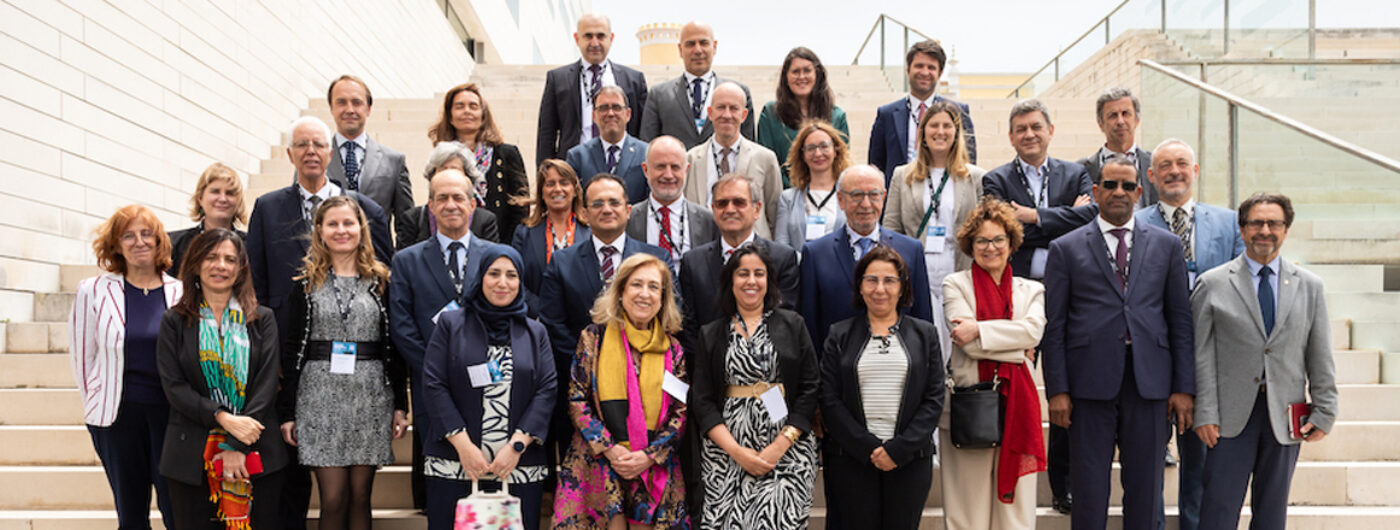
UfM Higher Education stakeholders convene to discuss governance improvements
16 May 2024, Lisbon, Portugal. The Union for the Mediterranean (UfM) and NOVA University of Lisbon, in collaboration with the Portuguese National Erasmus+ Agency, organised the UfM Higher Education Stakeholders’ Meeting, which took place on 16 May 2024 in Lisbon. The event was attended by approximately 40 participants, including university rectors and directors of regional higher education networks.
The opening of the event featured remarks from Fernando Alexandre, Portuguese Minister of Education, Science and Innovation, João Sàágua, Rector of NOVA University, and Itaf Ben Abdallah, UfM Senior Advisor on Higher Education and Research. Additionally, there were online contributions from representatives of the Directorate-General for Education, Youth, Sport and Culture of the European Commission and the Ministry of Higher Education and Scientific Research of Jordan, co-presidents of the UfM.
The primary focus of the meeting was to explore strategies for improving the governance of higher education institutions. Key topics discussed included academic autonomy, effective management, and gender equality. The event provided a platform for participants to share insights on the current governance challenges faced by universities and to foster Euro-Mediterranean collaboration. Attendees engaged in open debates, ultimately agreeing that enhancing governance is crucial for improving the quality of education and the employability of graduates.
“Since its inception, the UfM has been actively engaged in higher education through informal regional dialogues on internationalisation and mobility, aiming to strengthen regional cooperation and establish effective university partnerships. As the need for mutual understanding and youth opportunities in the region intensifies, our priority is now to establish an official and permanent UfM Regional Platform on Higher Education,” said Itaf Ben Abdallah, UfM Senior Advisor on Higher Education and Research.
Effective governance is vital for the success and sustainability of higher education institutions. Good governance ensures that universities operate with transparency, accountability, and inclusivity, fostering environments where academic freedom and institutional autonomy are respected. It promotes the efficient use of resources, encourages innovation, and supports the development of policies that enhance educational outcomes. Strong governance structures also ensure that institutions are responsive to the needs of their stakeholders, including students, staff, and the wider community, thus contributing to the overall socio-economic development of the region.
More information


